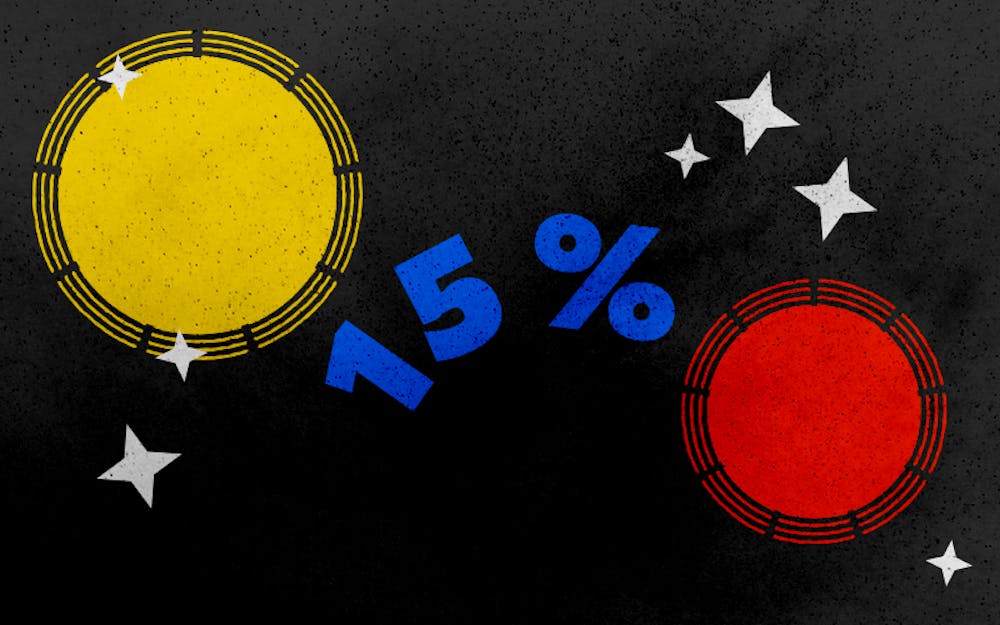Over the summer—and in the midst of widespread protests against police brutality and anti–Black systemic racism—a number of initiatives popped up across social media with the goal of pressuring the beauty industry into supporting Black–owned businesses and consumers.
Started in June by designer Aurora James, the founder of the NYC–based footwear label Brother Vellies, the 15 Percent Pledge is one such initiative. Demanding that 15% of shelf space should be devoted to products from Black–owned businesses (proportional to the 15% of the United States population that Black people represent), major companies like Sephora ultimately signed on in a show of commitment to supporting women of color in the beauty industry.
Another initiative was the Pull Up or Shut Up campaign devised by Uoma Beauty’s Sharon Chuter, which called on brands to release data regarding the number of Black employees within their businesses and the positions that they occupied. In response, industry giants like Ulta Beauty, P&G Beauty, L’Oreal, and many others all began posting their (usually rather low) numbers of Black employees in non–entry level positions, often including plans to increase diversity in hiring in the future.
Many powerful beauty brands made a lot of promises this summer. But did they actually keep them?
Unfortunately, new research suggests that the commitments made by these companies were short lived. Eyecue Insights, a social media analytics platform specializing in AI image analysis, found that there was a 122% spike in the number of images posted by beauty brands across platforms featuring dark–skinned models in the month of June. But by September, the figures had fallen back to where they stood in 2019, suggesting that this increase in social media representation was not sustained. Their report also noted that only 6 of the 70 brands that they had analyzed (Kylie Cosmetics, Lancôme, Urban Decay, Bobbi Brown, MAC, and Estée Lauder) managed to maintain their numbers from earlier in the summer.
While it is important to note that this research, which focuses on brands’ social media presence and not the make–up of their executive boards or the shade ranges of their products, the lack of Black women in advertisements and influencer partnerships is an important reflection of the lack of importance that companies place on diversity and inclusion. It's a marker of performative activism. If they aren’t centering dark–skinned models in images that are subject to public scrutiny, it seems unlikely that they’re going out of their way to hire Black women to the teams that aren’t being posted on social media.
A notable example of this is the ongoing movement to #BoycottGlossier. Following the skincare brand's promise to support Black–owned businesses, a group of the brand's former retail employees teamed up to launch @outtathegloss to shed light on their experiences with discrimination while working for the company. As of a few days ago, most of their demands were still unmet, and they continue to urge their followers to boycott the giant.
But Glossier is not the only brand that has failed to live up to its promises of inclusion. Ethical and sustainable fashion brands Everlane and Reformation have also faced similar criticism for the disconnect between their socially conscious branding and continued mistreatment of retail workers and company cultures that exclude employees of color.
What becomes clear from this new data and ongoing discussions of exclusive and discriminatory company cultures is that, for many companies, diversity pledges were merely a marketing strategy. When public outrage died down and they were no longer being closely watched, several brands reverted back to their old habits.
But what can be done to fix it? While many initiatives launched this past summer were successful in forcing brands to confront their lack of diversity, the problem stands that companies didn’t stick to them, in large part because consumers didn’t hold them accountable. If we stop demanding transparency from the companies we purchase from, we make it that much easier for them to hide discrimination and maltreatment.
Instead, let’s continue to support these movements with the same fervor we did this summer. Let’s continue to support Black–owned businesses when we can (here’s a great list of some located in Philly) and continue to check on the promises made by brands before we checkout.







